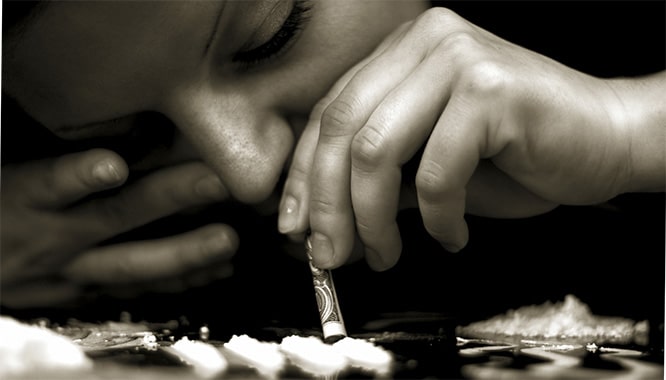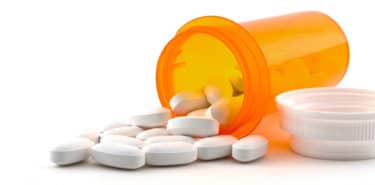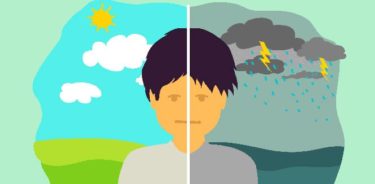Cocaine, obtained from the coca plant leaves (Erythroxylon), is an addictive and stimulating substance. Although it was used for medical purposes in the past, it is illegal to use it today because of its addictive nature. Cocaine as a drug is in the form of a white, crystalline powder. It prevents decomposition of dopamine, serotonin and norepinephrine substances in the brain. Increasing levels of these molecules in the brain cause effects of addiction in cocaine users.
What is cocaine (benzoylemethyl)?
Cocaine is a pleasure inducing drug that has strong stimulating effects on the brain. In addition to its addictive properties, it can lead to psychotic behavior and ultimately to death. In history, coca leaves were used for local anesthesia as well as for religious ceremonies. Having discovered America, Spanish explorers found out effects of coca leaves on mind, its use was soon banned.
History of cocaine
After 1850, cocaine was widely used in western medicine because of its medical effects. Local anesthetic and stimulant effects of it were discovered by pharmacist and psychologist Sigmund Freud and ophthalmologist Karl Koller. At first, Koller used it in cataract surgery, and then it was generalized for all surgical procedures.
Cocaine, which was added to Coca-Cola for a period, was declared illegal in the 1960s due to its addictive and destructive potential. However, its use as a consciousness altering drug in America in the 1970s became very popular. Due to the psychological and physiological adverse effects on heavy cocaine users, it is not used as medicine anymore. It is forbidden to use in many countries.
Forms of cocaine and types of use
There are two forms of taking it: powder and freebase. The main uses of it are respiratory (or nasal), injection and smoking. The level of risk increases depending on the type of use. Addictive effect is more rapid in the form of a cigarette than its nasal use. When one smokes cocaine, a high amount of it quickly goes to the brain.

Properties of cocaine
Pharmacology of cocaine
The first molecule used as a local anesthetic, it was used in eyes, teeth and other surgical operations. It prevents electrical stimulations in nerve cells as well as decomposition of dopamine, serotonin and noradrenaline in the brain. Secretion of these molecules in high amounts causes narrowing of the vessels, tachycardia (heart beats too fast), sudden increase in blood pressure, ventricular arrhythmia and epilepsy seizures. Growth of pupils, high blood sugar and high body temperature are other effects caused by cocaine.
What is the effect of cocaine?
When cocaine is used, the amount of dopamine increases rapidly in the brain. A person’s self-confidence rises, he/she becomes chatty and social. He/she gets a great sense of happiness and mobility. His/her heart rate is accelerated, and blood pressure rises.
Dangers and side effects of cocaine
Effects of cocaine on the brain
It increases the level of serotonin, norepinephrine and dopamine, chemical transmitters in the brain. Usually, these molecules return to the cell where they are released, allowing the transmission of nerve cells to end. When cocaine is used, these molecules are not taken into the cell, their number increases between nerve cells, and nerve communication is disrupted.
Serotonin, norepinephrine and dopamine flow in the brain increases the need for greater amount of it because the brain becomes accustomed to the current levels of cocaine use. Consequently, it there is a drop in regular consumtion, deprivation syndromes occur.
Cardiovascular effects of cocaine
Cocaine use can cause cardiovascular and cerebrovascular diseases that result in sudden death, such as irregular heartbeat, heart attack or stroke. Deaths usually occur with cardiac arrest or respiratory arrest. Taking high doses of it causes breathing difficulties, high blood pressure, fever, hallucinations and severe irritability.

Effects of cocaine on mental health
Since the addictive effect of cocaine occurs directly through the substances secreted in the brain, the psychological effects are also evident. While the person is very lively, talkative and self-confident when he/she uses it, he/she becomes aggressive and depressed in the periods when the substance is not used. Also, psychotic behaviors and paranoia develop. A serious nervous breakdown can occur.
Effects of cocaine on physical health
- Talkativeness
- Sleep and reduced appetite
- Increased sense of vision, hearing and touch
- Dry mouth
- Fasciculation
- Pupil dilation
- Unrest and irritation
More serious effects:
- Nausea and vomiting
- Tremors
- Dizziness
- Increased heart rate and high blood pressure
- Rapid respiratory and respiratory difficulties
- Wild behaviors
- Heart problems
Long-term effects of cocaine
- Loss of sense of smell, nosebleeds, persistent nasal discharge and swallowing difficulties for the nasal users
- Severe infections such as asthma, cough, respiratory disorders and pneumonia for cigarette users
- Serious constipation due to reduced blood flow for oral users
- HIV, Hepatitis C and other blood-borne infections, skin and soft tissue infections, skin wounds and narrowing of the vessels for vein users
- Insomnia and fatigue
- Depression
- Paranoia, psychosis and irritability
- Disruption in sexual functions
- High blood pressure and irregular heartbeat
- Heart diseases and death
Cocaine overdose symptoms and effects
When it is taken in overdose, it can be fatal. High dose intake can be done consciously or unconsciously. Overdose death can occur even during first use of cocaine; risk may increase even more when taken together with alcohol.
When used in combination with other drugs as heroin, deadly combinations occur. Some people have severe effects such as cardiac arrest, heart attack, epilepsy crises and stroke. Shortness of breath, hypertension, high fever, hallucinations and nervous breakdown are other symptoms of overdose.
How does cocaine addiction occur?
As in other addictive drugs, cocaine also affects normal functions of the brain, resulting in long-term dependence. The brain needs more dopamine than usual, therefore demanding more cocaine.
How is it understood that a person uses cocaine?
Nose bleedings and nasal bleedings can be seen in nasal addicts. However, as in other drug users, the use of cocaine may be suspected for persons who experience symptoms of withdrawal, and exhibit bad behaviors such as theft, lying, etc.
Cocaine deprivation symptoms
When cocaine addicts stop taking it, some irritating symptoms called withdrawal syndrome appear. Withdrawal syndrome begins 1-2 days after the last use, on the 4th and 7th day, it worsens and continues for about 10 weeks. It has 3 stages:
- Depression – irritability, intense hunger, cocaine crises, excessive fatigue
- Deprivation – withdrawal attacks, energy depletion, nervous breakdown, constantly feeling bad, insomnia and nightmares (may continue for up to 10 weeks)
- Exhaustion – intermittent withdrawal attacks
It is possible to get rid of cocaine addiction with a proper treatment and support.
Cocaine addiction treatment
How to flush cocaine out of your system?
It is discharged from our body by being decomposed in liver. It can be detected in urine within eight days after use. Due to the increase in cocaine addiction worldwide, intensive research is carried out to develop treatment programs.
Cocaine addiction is a complicated problem that includes social, familial and environmental factors as well as physiological modifications in the brain. Psychological, social and drug treatment approaches are possible in the treatment of addiction.
Pharmacological approaches
There is no particular drug that can treat cocaine addiction. However, studies on the efficacy and safety of certain drug active substances continue. There are some promising findings for two active substances called topiramate and modafinil.
An active substance called baclofen has also shown positive results in some groups that are highly addicted to cocaine. Some of the antidepressant drugs can also benefit in the early periods of cocaine abuse. However, there are drug treatments for emergencies due to overdose cocaine intake.
Cocaine addiction therapy
Behavioral therapies when combined with drug therapies are more effective in cocaine addiction treatment. The treatment results were found to be very effective when an active substance present in alcohol addiction called disulfiram was applied together with behavioral therapy. The overlap of treatment with needs of patient is also very important. Some treatments with reward mechanisms can be successful in treatment of addiction.
Tips for stop using cocaine
- Do not see people who use or provide drugs.
- Strengthen your social environment.
- Take part in socially useful works such as volunteering.
- Develop a healthy lifestyle. Habits like exercise, healthy and balanced nutrition and regular sleep will be quite good for you.
- Make plans for the future.
- Develop a positive perspective.
- Meet your doctor regularly, do not delay your check-ups.
- Develop a habit of pursuing activities that will increase your awareness level, such as meditation, yoga, self-help and support groups.




